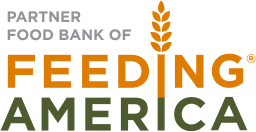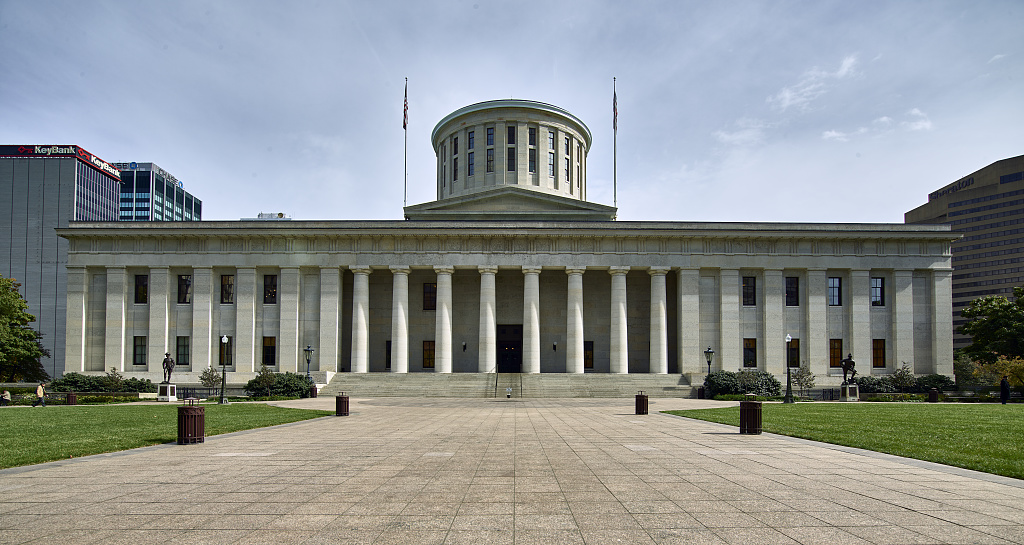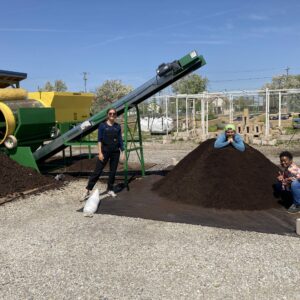New Bill Could Change Food Donation for The Worse
Ohio S.B. 16 could allow charitable organizations to charge for food without repercussions.
By Mary Beringer, Grant Manager
Since 2009, the state of Ohio has had what is called a “Good Samaritan Law”, Ohio Revised Code 2305.37. This law protects any charitable organization that distributes “consumer goods or perishable food” to individuals. In the event that some harm (like a foodborne illness) befalls someone who receives donated food, the charitable organization is not legally liable, as long as they believed in good faith that the food was safe for human consumption at the time they decided to donate it.
This law is what allows food banks, food pantries, soup kitchens, and similar organizations to operate confidently across the state. As long as they are not willfully negligent in their handling and distribution of donated food, charitable organizations can be confident that they will not be prosecuted for simply working with the product that they have to feed their neighbors.
Over one third of the food that The Foodbank, Inc. distributed in fiscal year 2022 was unsold products rescued from retail establishments like Kroger and Whole Foods, which might otherwise have been thrown away. We have an extensive sorting, labeling, and reevaluating process which ensures that no donated food sits for too long before being distributed or, in less than 1% of cases, discarded/composted. This Good Samaritan Law protects us in the unlikely event that something were to slip through the cracks and make a neighbor sick.
Starting in 2022, Senator Steve Wilson of Ohio proposed an amendment to this law. Such amendments are common, and usually stem from a desire to refine the definitions of some of the terms used within the law. Wilson’s revision, S.B. 16, changes one of the requirements for a qualified charitable organization. Currently, organizations cannot “charge or accept any form of compensation from the individuals in need for the distribution of the consumer goods or perishable food to them.” In S.B. 16, this section instead states that a qualified organization “does not charge for the distribution of perishable food to individuals in need, or it does not charge individuals in need more than an amount sufficient to cover the cost of handling the perishable food distributed to them”.
In essence, under this revision, Good Samaritan protections would extend not just to traditional food banks and food pantries which distribute food for free, but also to organizations that charge for food they distribute to “individuals in need”, so long as the amount they charge is only enough to cover the costs of handling the food.
The Foodbank knows very well the high costs of running a charitable organization, and we are passionate about all employees, including those in the nonprofit world, earning a living wage. The apparent benefit to S.B. 16 would be opening the door for nonprofits and other organizations to more fairly compensate their staff. However, the risks inherent in this bill greatly outweigh any possible benefits.
Any organization that charges its food insecure neighbors for meals is going to have an expanded budget, not just to pay employees, but also to pay companies like Whole Foods and Kroger for the products that they can’t sell to the general public. The stores would be happy with this arrangement, since they still get to turn a profit (or close to it) on a significant amount of food. The problem arises when there are limited resources in a given area.
Though there is plenty of food in the world to feed every hungry person, due to that food being pooled in certain areas geographically, resources are not always naturally spread out equitably. The Foodbank gets more than one third of its product from local retail donations, and this has been built up over the years by gradually spreading our network until almost every grocery store in the area is donating their unsold product either directly to us, or to one of our partners. It’s a great relationship, because the food goes to a great cause, and few other groups have the capacity and desire to take the donations.
If S.B. 16 passes, The Foodbank might not be the only organization interested in that product. The Foodbank, Inc. and other food banks across the state would be in competition for those donations with organizations who are willing to pay the stores for their product. Some might say that the food banks should just expand their budgets to pay the stores too, but the fact of the matter is that we are committed to keeping our resources free to our neighbors. We will never ask individuals experiencing food insecurity to pay for the food they have a right to as human beings.
In a worst case scenario, an S.B. 16-empowered organization may force out their local food bank, taking in all the local resources and charging their neighbors for that food. This could leave some areas with limited options for truly free aid, or in fact none at all.
By not charging for the food we hand out, The Foodbank, and groups like us, enable our neighbors to use the money they would have spent on food on other needs, like rent, utilities, medical bills, or any of the dozens of unexpected life events that can push a household into food insecurity.
The Foodbank is also serious and passionate about food safety. Though we have the protection of the current Good Samaritan Law, we go above and beyond to make sure that all the food we hand out is safe, nutritious, and delicious. Would an S.B. 16-empowered organization do the same? Restaurants that charge for food are strictly regulated and monitored by the health department and could be legally liable if the food they served someone made that person sick. However, an S.B. 16-empowered kitchen would be able to charge for food but would not necessarily have that same regulation and liability. Would they prioritize the best interests of their neighbors? Would neighbors be able to pay for their food with SNAP or TANF funds? Would the distributed food be safe? How would this affect the existing food rescue ecosystem?
There are too many questions that arise from S.B. 16. The answers are hazy, but not encouraging. If you have opinions or concerns about this bill, write to your local Ohio senator and make sure they know how you feel. Your voice can make all the difference.





No comment yet, add your voice below!